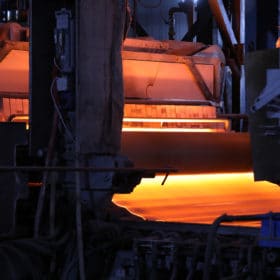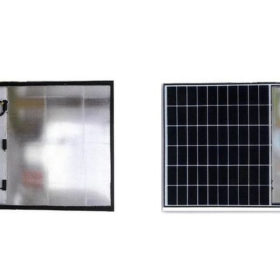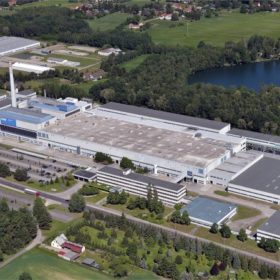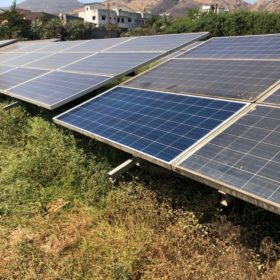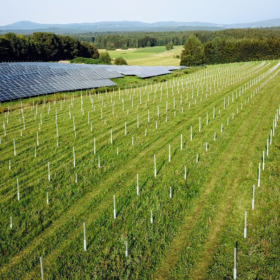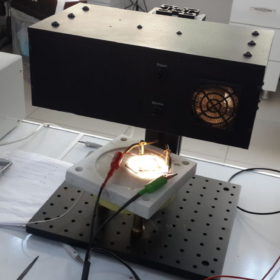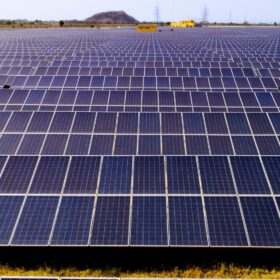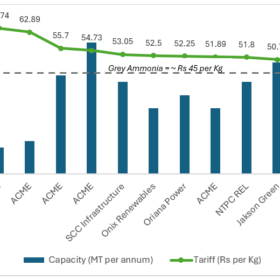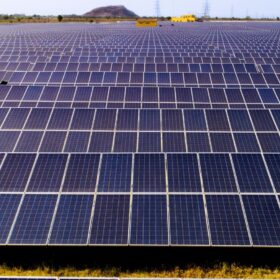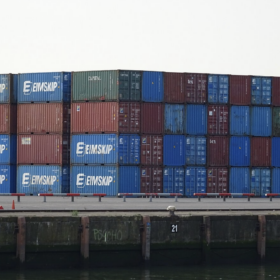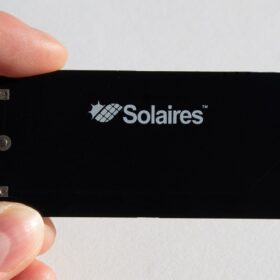Germany seeking proposals for 10 GW of solar factories
Solar manufacturers have until Aug. 15 to submit PV factory proposals to the German authorities.
Borosil Renewables profit drops 47% as margins contract
The Indian solar glass manufacturer recorded a net profit (profit after tax) of INR 88.54 crore in FY 2023, a decrease of 47% over FY 2022.
Water jet tech to recover glass from end-of-life solar panels
Japan’s Shintora Kosan has developed a novel water jet technology to recover glass from end-of-life PV modules. It says it can pulverize the solar cells and the backsheets without damaging the glass.
Borosil Renewables completes acquisition of 86% in Europe’s largest solar glass maker Interfloat Group
Borosil Renewables had signed a binding offer for 100% equity in Interfloat Group, Europe’s largest solar glass manufacturer, in April this year.
Solar module anti-soiling coating for retrofit application
Dutch company Rads Global Business has developed an anti-soiling coating for solar PV modules that are at least two years old. The new product is claimed to increase power yield by up to 7% and to have a payback time of 2.5 to four years depending on the dust level of the site.
Borosil Renewables to expand solar glass manufacturing capacity to 2,000 tons per day
The solar panel glass manufacturer expects strong growth in demand for its products at home and abroad with a significant rise expected in the production of PV modules in the USA and Europe.
Solar module prices will stay high until 2023, IHS Markit says
IHS Markit predicts that global installed solar PV capacity will grow by 20% to over 200 GW in 2022, despite a difficult cost environment. PV system costs are expected to resume their downward trend from 2023, when more polysilicon capacities will come into operation.
High hopes from PLI scheme for solar manufacturing
India’s production-linked incentive (PLI) scheme—which targets 10 GW of integrated solar PV manufacturing capacity within two years—will spur demand for locally produced materials like ethylene vinyl acetate (EVA) sheets, solar glass, backsheet and junction boxes, too.
World could add up to 194 GW of solar this year
Falling module prices will help PV post another record year after an estimated 132 GW was installed worldwide in 2020, according to an energy transition investment trends report published by Bloomberg New Energy Finance.
Assessing the impact of micro-cracks in solar glass
A Turkish research team has analyzed how big changes in temperature can affect absorbance, light transmittance and reflectivity in two types of solar glass. The scientists demonstrated lower efficiency in solar cells and the glass itself were attributable to a large number of micro-cracks and deformations on the glass surface.

